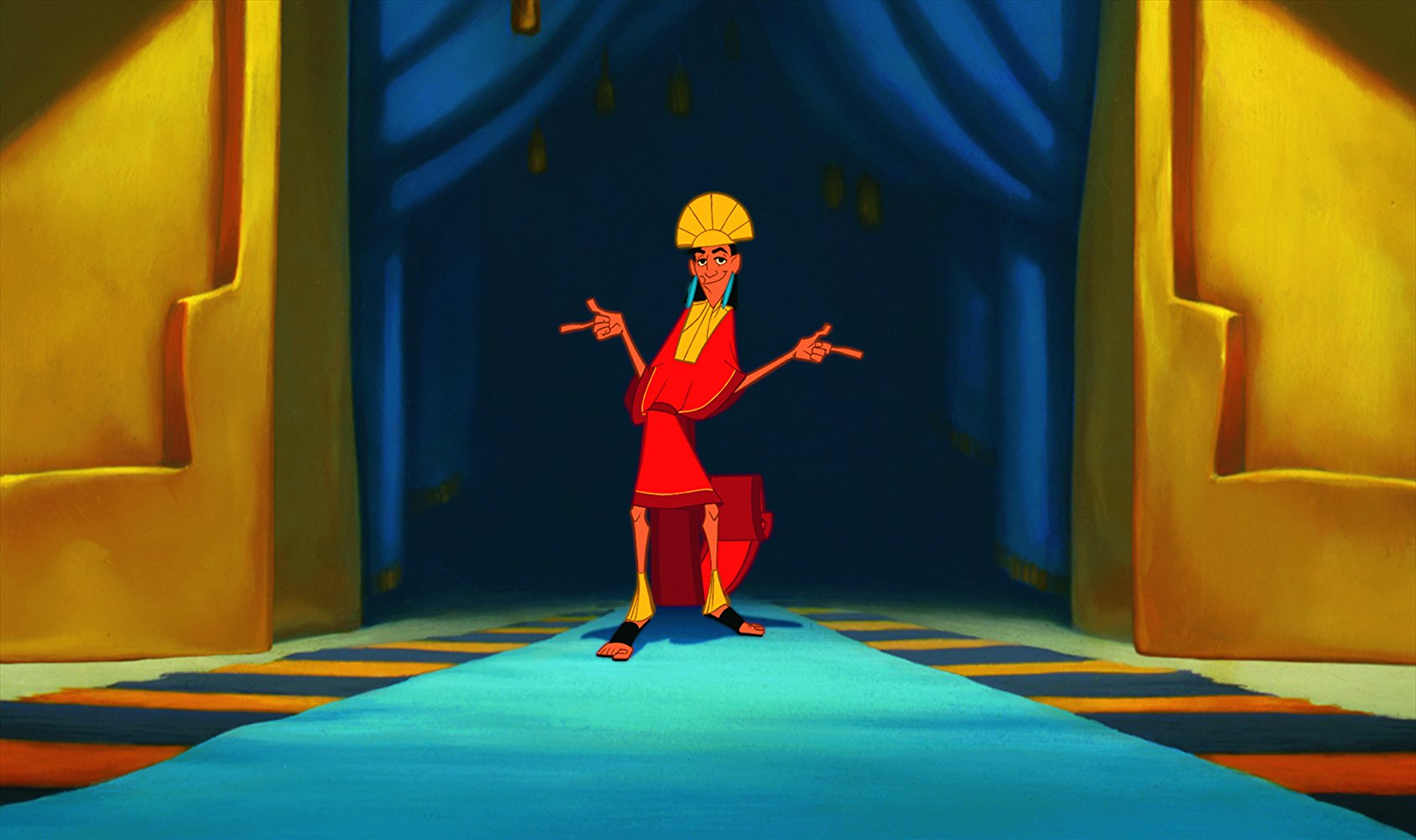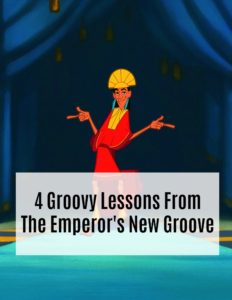From poison to spinach puffs- this Disney story has it all.
Winning a handful of awards and a cult-like following, The Emperor’s New Groove is a shining gem we can learn from as storytellers and writers.
The only question in this offbeat animated classic is where to even start?
(This post does contain some spoilers. Sooo you should probably go watch the movie if you haven’t seen it already 😉 )
1. Be yourself
From the first “Boom Baby” entrance of Emperor Kuzko, this movie is clearly moving along to its own beat.
A movie about a talking llama? With a Theme Song Guy, a secret lab roller coaster, and a plot-relevant trampoline? These don’t fit any preconceived formula for a children’s story that I’ve heard of.
This story clearly doesn’t fit the conventional molds. It wasn’t written because “that’s what sells” or “that’s what’s in this year.” This film has its own style and its own charm.
If The Emperor’s New Groove wasn’t so different (and sometimes downright strange) it wouldn’t be so much fun.
The thing to remember here is that when we try to force our stories to be something they’re not we are selling ourselves and our stories short. Sure, at times we may need to write about something we don’t care about. Or we may need to figure out how to fit our work into genre categories or meet certain word counts. There are some writing rules and guidelines that are good to follow.
But The Emperor’s New Groove reminds us that we have the freedom to create things that are bold and new and may not follow all of the rules along the way.
To think about: What does your writing contain that is unique to you? How do your passions and personal style influence your writing?
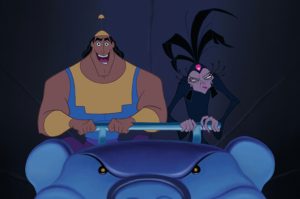
2. Have A Solid Core
Wacky as it may be, The Emperor’s New Groove is not a shallow film.
All great stories have a solid center to them. They have some sort of a core or theme of truth that resonates with us. Take a moment, can you think of one of your favorite movies? What’s at the center of the story? What do the characters learn or represent?
In The Emperor’s New Groove our protagonist Kuzko is self-centered to the max. His world is created to revolve around him and he likes it that way. If he had returned home at the end of the film only to resume his selfish reign this story wouldn’t be nearly so great. Instead, concepts such as sharing, teamwork, and humility are explored as Kuzko changes to learn to care for others.
We don’t want to be preachy or obnoxious with this (don’t force it!) but it is important to remember that we have a place to be honest and real and to explore core truths that we can all share.
To think about: Is there a kernel of truth at the center of your current project? What lessons do your characters need to learn or practice?
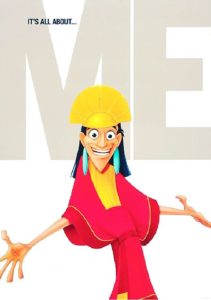
3. Be Willing To Revise
According to IMBD, the original concept of The Emperor’s New Groove was that it would be a dramatic musical titled “Kingdom of the Sun” which would be a retelling of Mark Twain’s “The Prince and The Pauper.”
Obviously that’s not exactly what happened! Apparently, “Kingdom of the Sun” received such poor reviews that production was stopped and staff left to work on other projects.
Just think, that could have been the end of the story right there.
But instead the story changed. Songs and characters were cut. New characters were added. The style and feel of the story changed drastically becoming more of a comedy than a drama. The Emperor’s New Groove as we know and love it was born.
Have you ever received feedback that made you question whether your story was working or not? Ever heard the often quoted literary advice to “kill your darlings”?
Because sometimes our stories just aren’t working.
Sometimes it’s heartbreaking and hard to revise our work, to scrap our ideas, and to change how our story goes.
Sometimes it’s easier to just say it’s good enough or to let the project stall out instead of completing the revisions needed to really make it shine.
But let’s not give up on our stories.
It may take revision after revision, project after project, until we barely recognize our own work but we will get there.
To think about: Who do you have around you who can provide constructive feedback for your writing? What are your next steps to revise your current work and make it better?
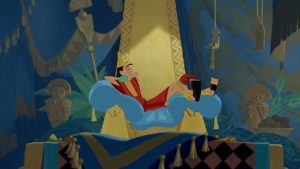
4. Have fun with it!
Are you having fun with your writing today?
There is a lot of fun in The Emperor’s New Groove, though our stories doesn’t all need to be comedies. (Though humor can’t hurt!)
When we’re enjoying what we’re doing we bring an added energy and enthusiasm to our writing.
I know that sometimes writing isn’t all fun and games. It can be hard physically, mentally, and emotionally. And writing even when it’s not fun or easy can be one of the marks of a great writer- to press on and bring a project forward to completion.
These are times when it’s more important than ever to practice self-care, prevent burn out, and to remind ourselves of why we started writing in the first place.
Even when writing is hard we can find aspects to enjoy. And when we are taking care of ourselves and remembering what we love about our storytelling, we can bring joy and greater focus to our writing. And who doesn’t want joy and greater focus? Let’s enjoy our work and celebrate being creative!
To think about: Why do you write? What do you enjoy about your current project(s)?
And now excuse me, it’s time for me to go make some popcorn and rewatch this movie for the umpteenth time! Is this one of your favorites too? Let me know your favorite animated movies in the comments and maybe I can cover them in an upcoming post 🙂

